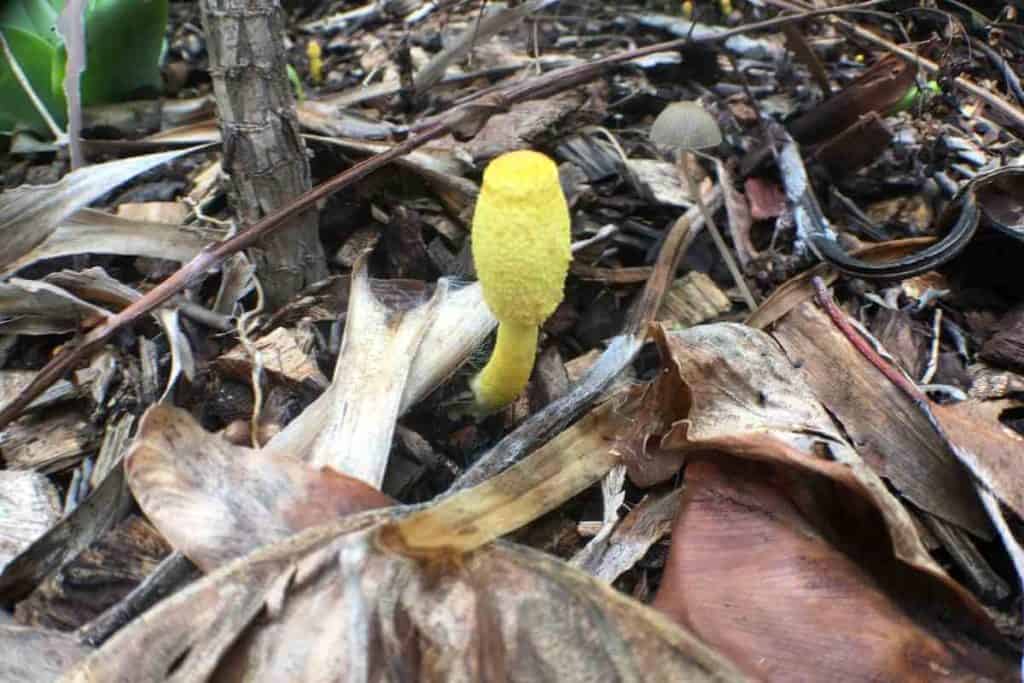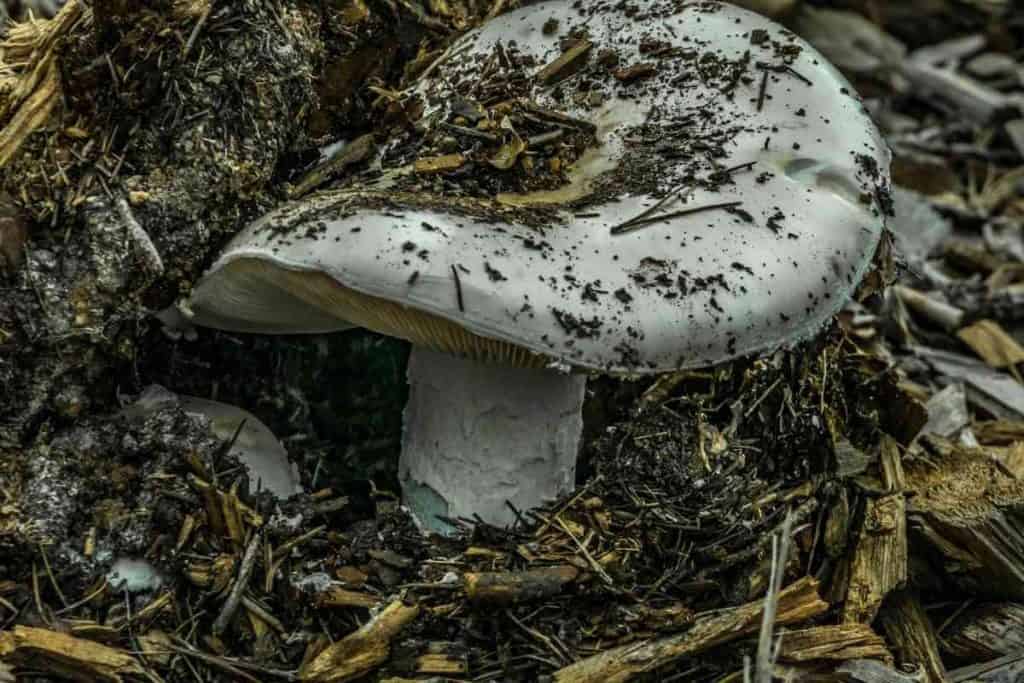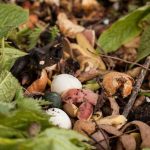While using mushroom compost in the garden has positive impacts on many plants, it is also not suitable for some plants since it contains salt. But will mushroom compost burn plants? What exactly can it do to plants?
Yes, mushroom compost can burn salt-sensitive plants due to its high salt content, especially when used excessively.
Let’s quickly look at how mushroom compost can burn your plants, how to know your plants are burnt, and how to deal with it.
Table of Contents
What is Mushroom Compost?
Mushroom compost is a carefully blended type of compost used for mushroom cultivation.
The discarded mushroom compost is typically used for growing mushrooms or other vegetables on smaller scales, such as by home gardeners.
What is Mushroom Compost Not Good For?

In some cases, mushroom compost should be avoided.
Ericaceous plants do not like mushroom compost. Some of these plants are rhododendrons, camellias, azaleas, and heathers. They are grown because they prefer acidic soil and dislike chalk. Leaf mold, which is pH neutral (wide leaves) or acidic (pine needle leaf mold) in nature, is used as mulch and soil improver in ericaceous beds.
Mushroom compost is not advised for use as a grass top-dressing unless the soil is highly acidic and a clear requirement for lime has been demonstrated.
Because mushroom compost includes a lot of soluble salts, it’s best not to use it in potting mixtures.
Will Mushroom Compost Burn Plants?
Yes, mushroom compost can cause plant burns if used excessively – and it can burn plants that are salt-sensitive.
Mushroom compost contains a lot of salt because of the greater sodium levels in manure and gypsum.
Too much salt in the soil can cause problems with soil structure and plant growth, such as water retention by plant roots.
This is why depending on the plant variety you’re cultivating; you should use the proper amount of mushroom compost, use it sparingly, or avoid it altogether. When you detect yellowish color on your plant’s leaves, you’ll know it’s burned.
Can I Use Mushroom Soil In My Garden?

Yes, mushroom compost has numerous advantages for your plants and the overall health of your soil. It adds many beneficial nutrients to your garden and is an excellent addition to it.
However, use it with caution because it can be harmful to some plants. Overall, mushroom compost is beneficial to your garden when thoroughly mixed with your garden soil.
Frequently Asked Questions
Can You plant straight into Mushroom Compost?
Yes, you can plant straight into Mushroom Compost. When using mushroom compost in organic gardening, thoroughly mix it with the garden soil before planting, or let it sit over the winter and apply in the spring.
When should you not use Mushroom Compost?
Mushroom compost should be avoided in areas where ericaceous plants such as rhododendrons, camellias, azaleas, and heathers are grown, as these plants require acidic growing conditions and are chalk-hating.
Is mushroom compost good for perennials?
Yes, mushroom compost can help the soil hold more water and provide nutrients. Mushroom compost can also be used as a mulch around trees, shrubs, and perennials when applied with caution.
Is mushroom compost better than regular compost?
Both products are high in nutrients and are great for your soil. Plants grow well when soil is applied to either of these products. However, because mushroom composting is a less time-consuming process, it is the better choice between the two, but that depends on the plant.
Where should you not use mushroom compost?
Mushroom compost should not be used for germinating seeds or planting seedlings since they are sensitive to high salt levels before they are fully established. Blueberries, camellias, and azaleas are among the plants that are sensitive to salt in soils even after they have reached maturity.
Is mushroom compost good for raised beds?
Mushroom compost is an excellent addition to a planting mix or raised bed medium. The straw provides great organic material to improve water retention and will slowly decompose over time.
Conclusion
Mushroom compost is an excellent way to increase plant yield. When used correctly, it can provide all of the necessary conditions for healthy growth in your soil.
However, if your compost contains a high salt content, you should be careful to source it from organic farms and use it sparingly. This ensures that the mushroom compost will not burn your plants.




